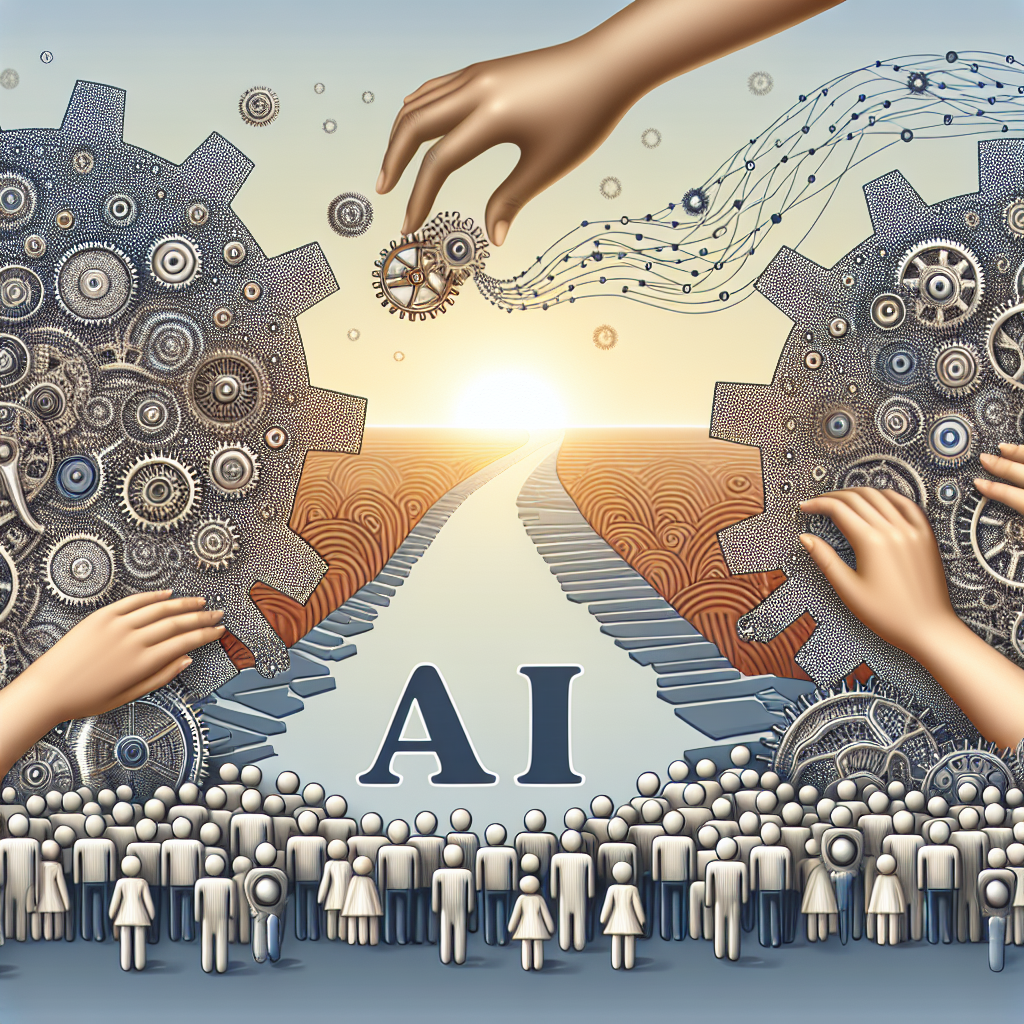Empowering Communities with AI: The Path to Democratization
Artificial Intelligence (AI) is revolutionizing the way we live, work, and interact with technology. From self-driving cars to personalized recommendations on streaming services, AI is becoming increasingly integrated into our everyday lives. However, as AI continues to advance, there is a growing concern about the potential for it to exacerbate existing inequalities and create new forms of discrimination.
One way to address these concerns is by empowering communities with AI. By democratizing access to AI tools and resources, we can ensure that all individuals and groups have the opportunity to benefit from this transformative technology. In this article, we will explore the potential benefits of empowering communities with AI, as well as some of the challenges that need to be addressed in order to achieve true democratization.
Benefits of Empowering Communities with AI
1. Increased Access to Education and Training: One of the key benefits of empowering communities with AI is the potential to increase access to education and training in AI-related fields. By providing individuals with the resources they need to learn about AI, we can help to create a more diverse and inclusive workforce in the tech industry.
2. Economic Empowerment: AI has the potential to create new opportunities for economic empowerment, particularly in underserved communities. By providing access to AI tools and resources, we can help individuals and groups to develop new skills and create innovative solutions to address local challenges.
3. Improved Healthcare: AI has the potential to revolutionize healthcare by enabling more accurate diagnoses, personalized treatment plans, and predictive analytics. By empowering communities with AI, we can help to improve access to quality healthcare services and reduce disparities in health outcomes.
4. Enhanced Civic Engagement: AI can also be used to facilitate greater civic engagement by providing tools for data analysis, communication, and decision-making. By empowering communities with AI, we can help to create more transparent and participatory governance structures.
Challenges to Democratizing AI
While there are many potential benefits to empowering communities with AI, there are also a number of challenges that need to be addressed in order to achieve true democratization. Some of the key challenges include:
1. Access to Resources: One of the biggest challenges to democratizing AI is ensuring that all individuals and groups have access to the resources they need to learn about and use AI. This includes access to hardware, software, training programs, and support services.
2. Data Bias and Discrimination: Another challenge is the potential for AI to perpetuate existing biases and discrimination. AI systems are only as good as the data they are trained on, and if that data is biased or discriminatory, the AI system will produce biased or discriminatory outcomes.
3. Ethical Concerns: There are also a number of ethical concerns related to the use of AI, including issues around privacy, transparency, accountability, and decision-making. These concerns need to be addressed in order to ensure that AI is used in a responsible and ethical manner.
4. Regulatory Frameworks: Finally, there is a need for regulatory frameworks to govern the use of AI and ensure that it is used in a way that benefits society as a whole. This includes regulations around data privacy, algorithmic transparency, and accountability.
FAQs
Q: How can communities empower themselves with AI?
A: Communities can empower themselves with AI by providing access to resources such as training programs, hardware, software, and support services. They can also work to address issues around data bias, discrimination, ethics, and regulation.
Q: What are some examples of how AI is being used to empower communities?
A: AI is being used to empower communities in a variety of ways, including in education, healthcare, economic empowerment, and civic engagement. For example, AI is being used to create personalized learning experiences for students, improve access to healthcare services in underserved communities, create new job opportunities in the tech industry, and facilitate greater civic participation.
Q: How can individuals learn more about AI and get involved in empowering their communities with AI?
A: Individuals can learn more about AI by taking online courses, attending workshops and conferences, joining AI communities and networks, and participating in hackathons and other events. They can also get involved in empowering their communities with AI by volunteering with organizations that are working to increase access to AI resources and opportunities.
In conclusion, empowering communities with AI has the potential to create new opportunities for economic empowerment, improved healthcare, enhanced civic engagement, and more. However, in order to achieve true democratization, we need to address challenges around access to resources, data bias and discrimination, ethical concerns, and regulatory frameworks. By working together to overcome these challenges, we can ensure that AI benefits all individuals and groups, regardless of their background or circumstances.

